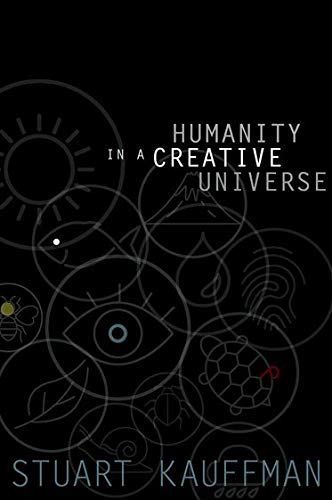
Humanity in a Creative Universe
Much of Stuart Kauffman's work in the philosophy of evolutionary biology has centered on the question of what he calls "prestatability" in evolution: that is, whether or not science can precisely predict the future development of biological features in organisms, using a singular "FinalTheory" of evolution. In this book, Kauffman argues that the development of life on earth is not prestatable, because no theory could ever fully account for the limitless variability of evolution. He believes that the biological universe's primary trait is that it is creative, and that acknowledgingthis creativity will lead to a radically different way in which humans view themselves and all other living beings. It is an argument against Reductive Materialism.Kauffman also asserts that man's Modern preoccupation to explain all things with scientific law has deadened our creative natures. In his words, he aims for the book to be "one that revises our scientific world view of the universe as entirely entailed by law." Instead, he advocates an approach toscience that accounts for "unprestatable" creativity, thus allowing humans to fully realize their creative selves. The book will build off the ideas developed in his last two works, Reinventing the Sacred and Investigations. Incorporating philosophers like Kant and Descartes, as well as the scienceof Newton and Darwin, Humanity in a Creative Universe is Stuart Kauffman's argument for a creative and unpredictable view of modern science.